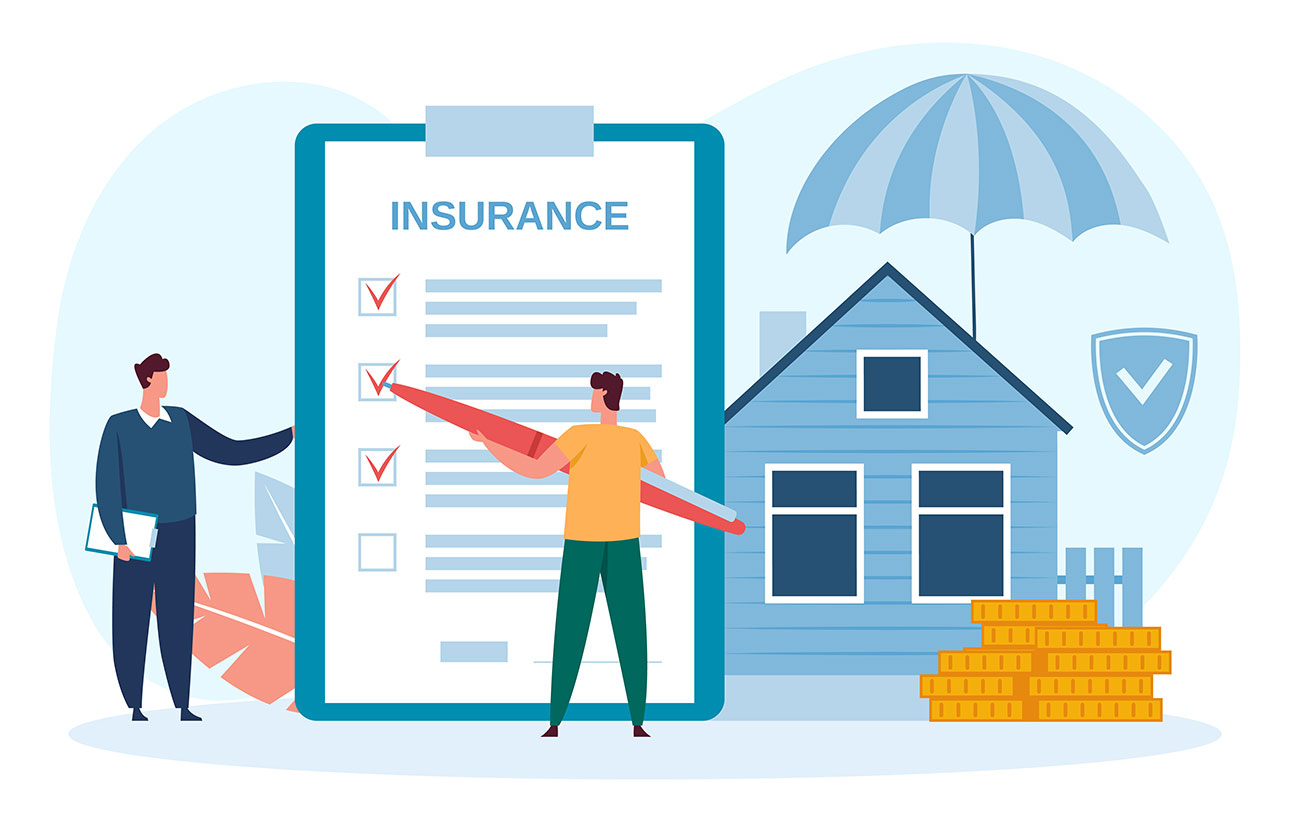Blog Guides Lending and mortgage
Understand why disability insurance matters
Updated Tue, Oct 8, 2024 - 7 min read
Top blog articles
Life is full of surprises, or should we say shocks. Unfortunately, we can’t predict what will happen in the future. But we can do certain things to get ready for anything. And, that’s why, disability insurance matters. Disability insurance is like a safety net that protects your income and makes sure your future is safe and sound. Most importantly, it provides you with immense peace of mind.
In this blog, we will learn more about why disability insurance matters, its features, cost, and how to get one.
Why disability insurance matters
One should think seriously about disability insurance. The longer you put it off, the less protection you have from unexpected health issues and injuries in worst case scenarios. These could affect you financially in the long run.
It’s crucial to understand why this benefit is important. Surprisingly, Social Security Disability benefits aren’t available if you expect to be out of work or unable to work for less than a year. Moreover, there are specific criteria to meet before getting the benefits.
Going without income for a year, if you can’t work due to illness or injury, could seriously impact your savings and overall finances. Disability insurance becomes essential in such situations, helping cover crucial expenses such as food, utilities, school fees, mortgage, and car loan payments. The Council for Disability Awareness highlights that back injuries, cancer, heart disease, and other illnesses are the main causes of long-term disability claims.
In 2020, the U.S. Social Security Administration found that over 25 percent of 20-year-olds will have a disability that keeps them from working for at least a year before they retire. Fortunately, disability insurance can help you keep getting money when you can’t work. And the good news is, it’s easier and cheaper to get this insurance when you’re young and in good health.
Top reasons why disability insurance matters

Disability insurance is vital because it provides crucial financial support when unexpected health issues or injuries disrupt one’s ability to work. By offering a steady income stream, it alleviates the financial strain that often accompanies disability, allowing individuals to focus on recovery without worrying about basic needs.
Safeguards your income
If you get sick or injured and can’t work, disability insurance steps in to protect your income. It replaces a portion of the money you lose, making sure you can still pay bills and cover everyday expenses, maintaining your lifestyle.
Fills the money gap in your lifestyle
Disability insurance fills the gap between what you can earn and what you need to keep up your standard of living. Remember that other benefits such as social security or workers’ compensation might not be enough if you face a long-term disability.
Gives you different options for coverage
Disability insurance plans differ in the conditions they cover and the benefits they offer. Consider factors such as the waiting period, benefit amount, elimination period, and the type of disability when choosing a policy.
Has an option for group disability insurance
For businesses wanting to support employees during disability, group disability insurance is a practical and affordable solution. What’s more, it complies with state and federal requirements.
Offers personal disability insurance
If you’re self-employed or a sole proprietor, personal disability insurance is crucial to protect your income and give you quick access to the right coverage.
What is the best way to protect your financial health?
Always set aside some emergency funds to support your lifestyle for at least three to six months. Having an emergency fund means you can support yourself for a few months in case you lose your job. Another smart advice that financial experts give is to consider getting disability insurance to cover 60-80 percent of your income after taxes. This way, you can handle your essential living expenses if you can’t work. Do figure out how much insurance is right for you. Also, check if your job offers disability coverage as part of your benefits.
What are the types of disability insurance?
Disability insurance is there to help you financially if you can’t work due to a disability. There are different types to choose from.
- Short-term disability insurance (STD) that covers temporary disabilities. It provides 60-80% of your income for a few months until you recover.
- Long-term disability insurance (LTD) that may last for years, even until retirement if necessary. It replaces 50-67% of your income for an individual policy or 40-60% for group coverage.
- Social security disability insurance (SSDI). Although it’s part of Social Security benefits, it can be harder to qualify for.
It’s best to choose the insurance type based on how long you can go without income, your savings, your family medical history, and if you’re the main provider for your family.
How does disability insurance work?
There’s usually a waiting period, called the elimination period, before policy benefits start. Typically, it spans from 90 days to a year. Some policies consider other benefits you receive, such as social security disability payments, and pay the difference. The benefit period determines how long you’ll get benefits. Policies vary in defining covered disabilities and whether you can return to your job or any job matching your skills. Some cover your job for a while and then limit benefits based on any job you can do.
When buying disability insurance, consider the company’s financial strength and reputation. The company you choose is committing to supporting you for a potentially long time if you become disabled. So, it’s wise to choose a company with experience, financial stability, and a good reputation.
How much does disability coverage cost?

Individual disability insurance typically costs between 1 to 3 percent of your annual income. However, if you receive disability coverage through your workplace, the rate can vary. The amount you pay in premiums depends on various factors.
Age plays a role, with older individuals facing higher premiums. Your overall health also influences costs, as a clean bill of health generally results in lower premiums. What’s more, engaging in risky activities such as smoking, scuba diving, or auto racing can raise policy costs. Your occupation matters too. High-risk jobs or working in hazardous environments may lead to higher premiums.
A shorter waiting period for benefits increases the policy cost, as does a longer benefit length. The income you need to replace can also impact policy expenses.
How to get disability insurance?
Always buy disability insurance through a professional association. You can buy an individual disability insurance plan – either from an insurance broker or an insurance company. What’s more, you can choose long-term coverage or short-term policies depending on your needs.
You can also sign up for employer-sponsored coverage at work. Most employers who offer disability insurance are willing to pay your premiums. Or, at least part of it. There are a few states that provide or require employers to provide short-term disability benefits. These include California, Hawaii, New Jersey, New York and Rhode Island.
Sometimes, there are options for buying disability insurance through the workplace. Some employers may let the employees buy coverage through their broker at a group rate.
Last thoughts
Whether you’re a high earner or have a regular job, disability insurance is a must-have. It protects you from unexpected life changes such as a serious illness, disability, or even a global pandemic. Just like we insure our homes, cars, and health, safeguarding our income through disability insurance is equally important for future security. It’s not about covering medical costs; it’s income insurance. That’s why experts suggest that anyone earning a living should consider getting disability coverage.









